Noel McKenna
A Walk from One Tree Hill to Half Moon Bay
2 - 31 May 2014
“Noel McKenna – a perambulist and bicycle rider to this day, he believes it is the best way to discover the spirit of a place.” Glenn Barkley.
A series of new paintings by Sydney artist Noel Mckenna, Two Rooms’ current international artist in residence, form an anecdotal visual narrative of his walking excursions around the streets and up the volcanic hills and mountains – Mt Eden, One Tree Hill, Mt Wellington, Pigeon Mountain – of Auckland’s eastern suburbs. “McKenna’s ritual of daily walking, alert to the elements of surprise and happenstance along the way, indulges his appetite for the occasional, the unrehearsed, the unexplained and is fundamental to McKenna’s art” writes his close friend, writer/poet Gregory O’Brien. For instance, walking through Cornwall Park, McKenna came accrossa solitary archer at target practice, which resulted in a signature painting for the exhibition.
McKenna’s fourteen new paintings can be experienced as vignettes or fragments of a narrative sequence , where individual works can be read in relationship to the other. McKenna’s diary of his month-long residency in Auckland: two fourteen page entries, a page a day, is on foolscap paper: the text and drawings, marked by a pervasive irony, read as an uncanny and compelling extended essay of his walk. McKenna’s paintings and diary are an oblique reference to Colin McCahon’s Walk(series C) painting, which relocates the fourteen Stations of the Cross to a walk along Muriwai Beach. In turn, McKenna’s new paintings transpose McCahon’s walk to a suburban setting
McKenna’s work displays a maverick independence. An ardent individualist, he has produced a body of work over the last three decades that has never conformed to the prevailing trends and pieties of the art world. Through decades preoccupied with large-scale art statements, McKenna’s domestic scale paintings draw you in rather than overwhelm. In an era that values, on the one hand, oil paintings, installations and new media, he has often chosen to work as a ceramicist and printmaker.
McKenna has an uncanny ability to de-familiarize the everyday: his wry sense of enquiry imbues the mundane, the commonplace with a sense of mystery and strangeness. It’s a particular sensibility that strikes a chord of familiarity in the viewers’ imagination. McKenna’s small-scale paintings and the humble nature of a lot of his subject matter has an intimacy – modest suburban dwellings and interiors, human figures and animals, as observed from the singular viewpoint of the passer by. McKenna says “My inspiration is the real world. I like to pick things that are almost neglected – most of my work comes from my observations drawn directly from the world around me.”
The pictorial simplicity and naïve quality of the images belies the complexity, the sophisticated draughtsmanship and composition, and the range of the artist’s style. His poetic rendition of the “landscapes and mindscapes of urban/suburban life makes him a scholar of sociological vernaculars” writes Anne Loxey. McKenna’s dry wit balances a keen awareness of both the richness, the sadness and the absurdity of everyday life: and a sense of melancholy for the remnants of our lost childhoods and past histories, as well as an encompassing awareness of mortality and the passage of time.
Paula Savage
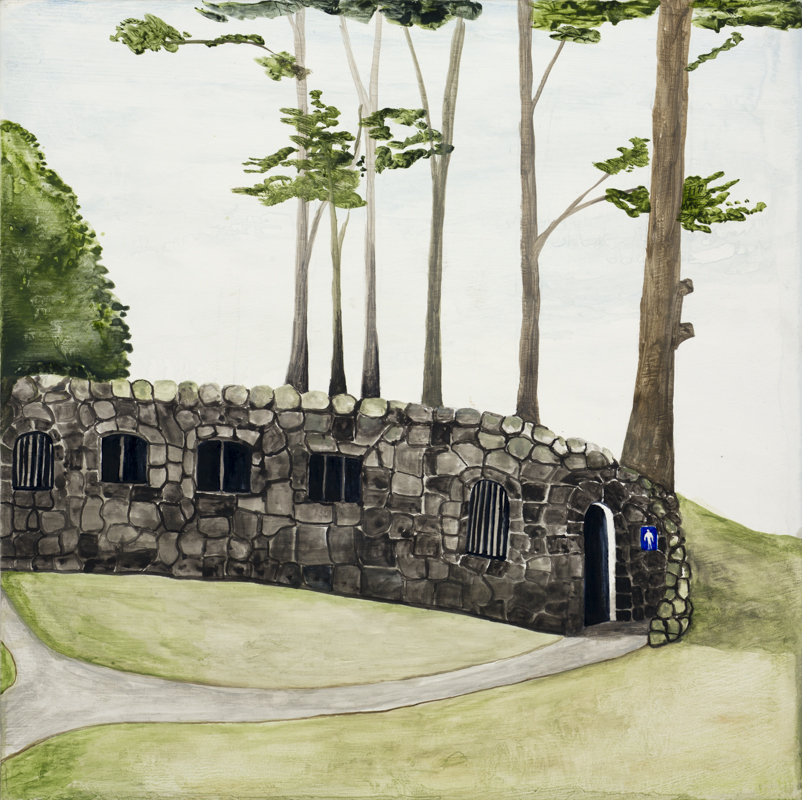
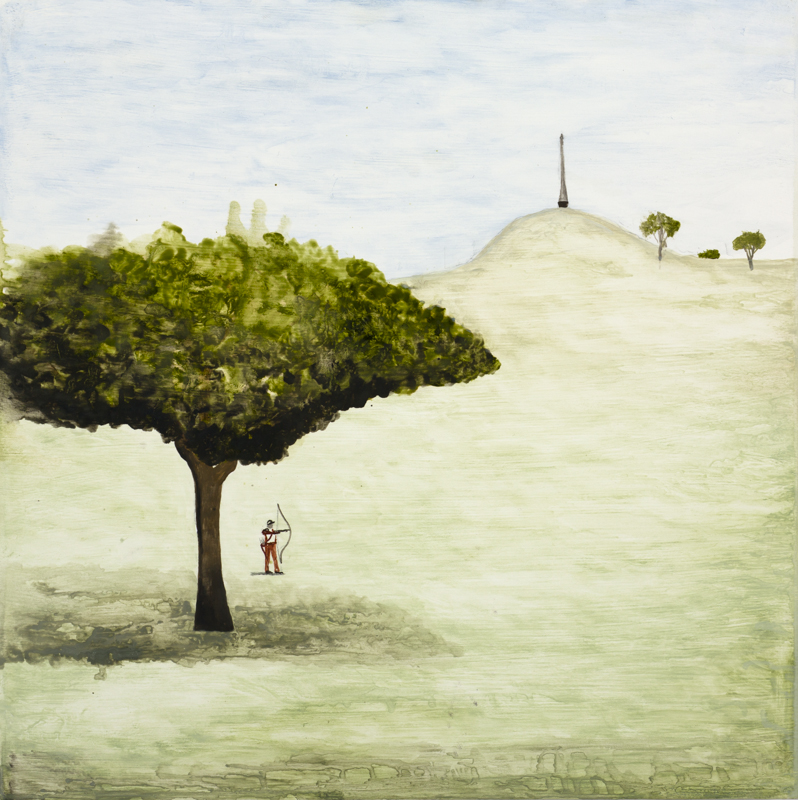
Oil on plywood
420 x 440mm
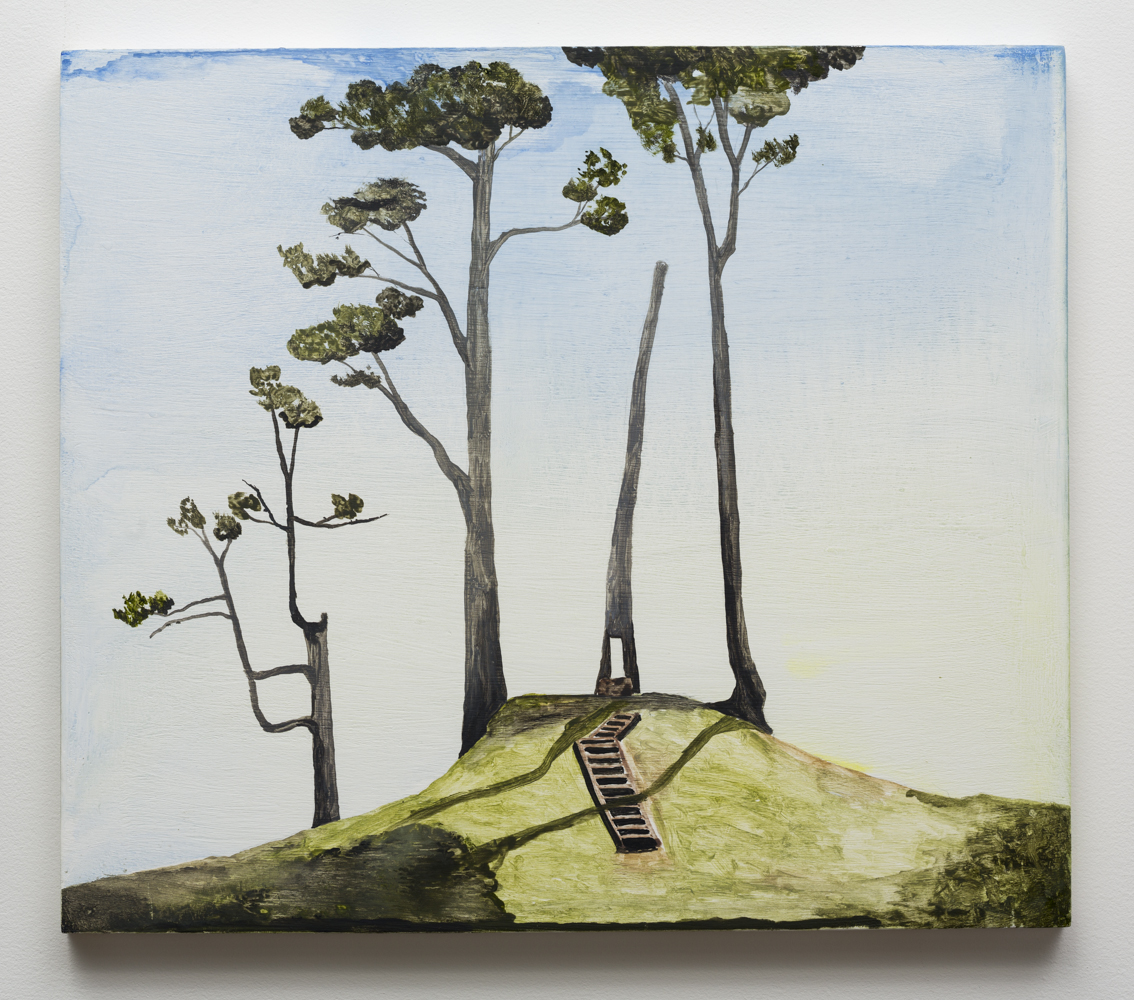
oil on plywood
370 x 440 mm
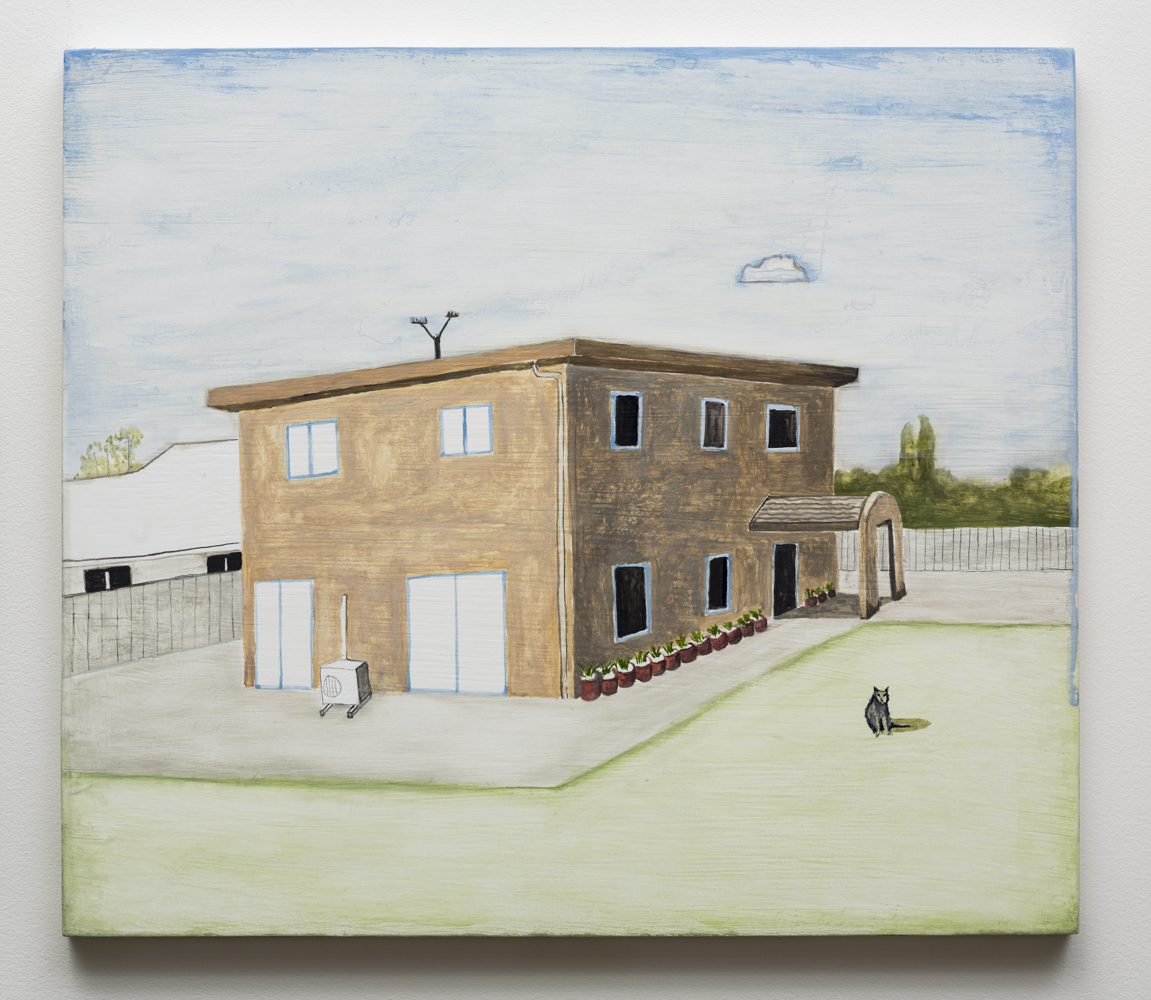
oil on plywood
370 x 440 mm

oil on plywood
370 x 440 mm
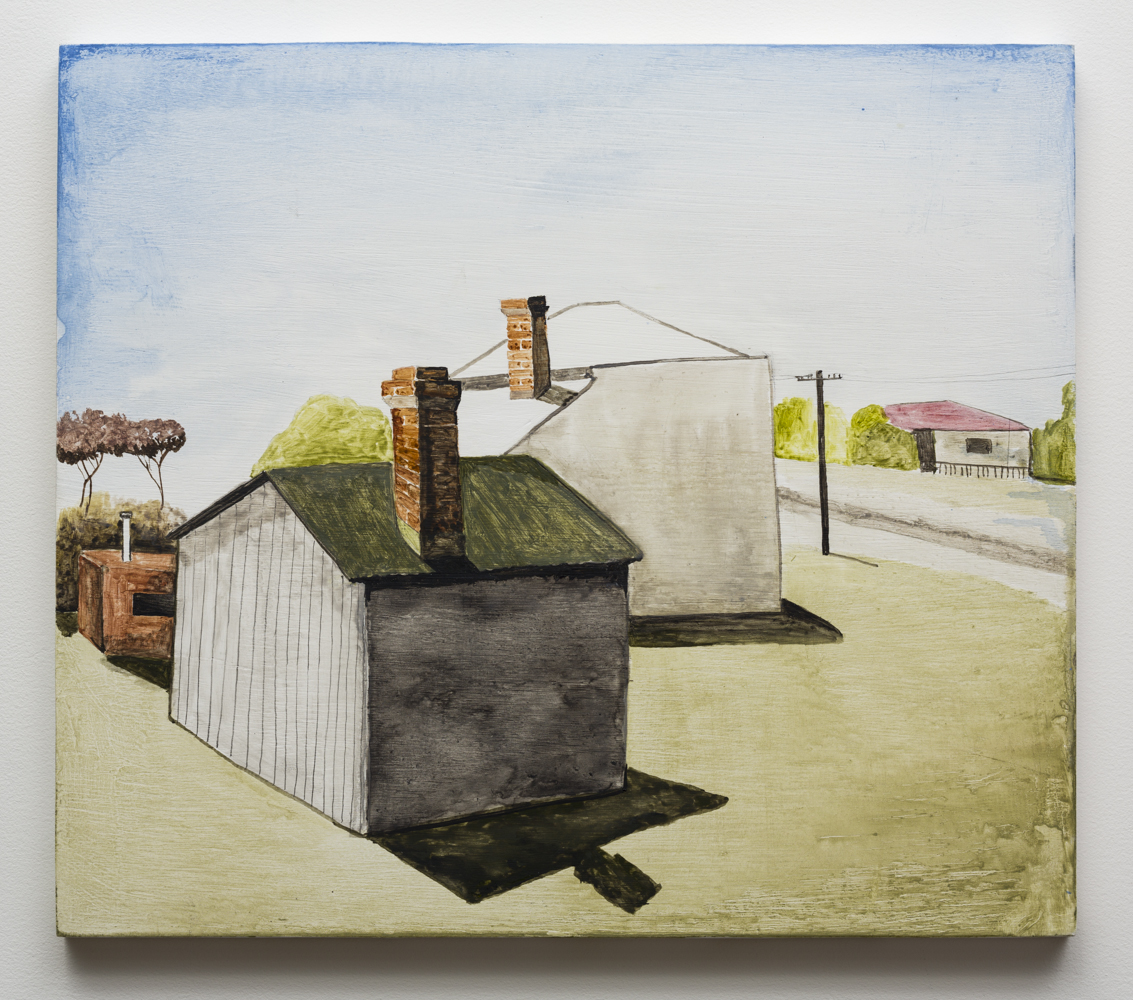
Property, Panmure Auckland, 2014
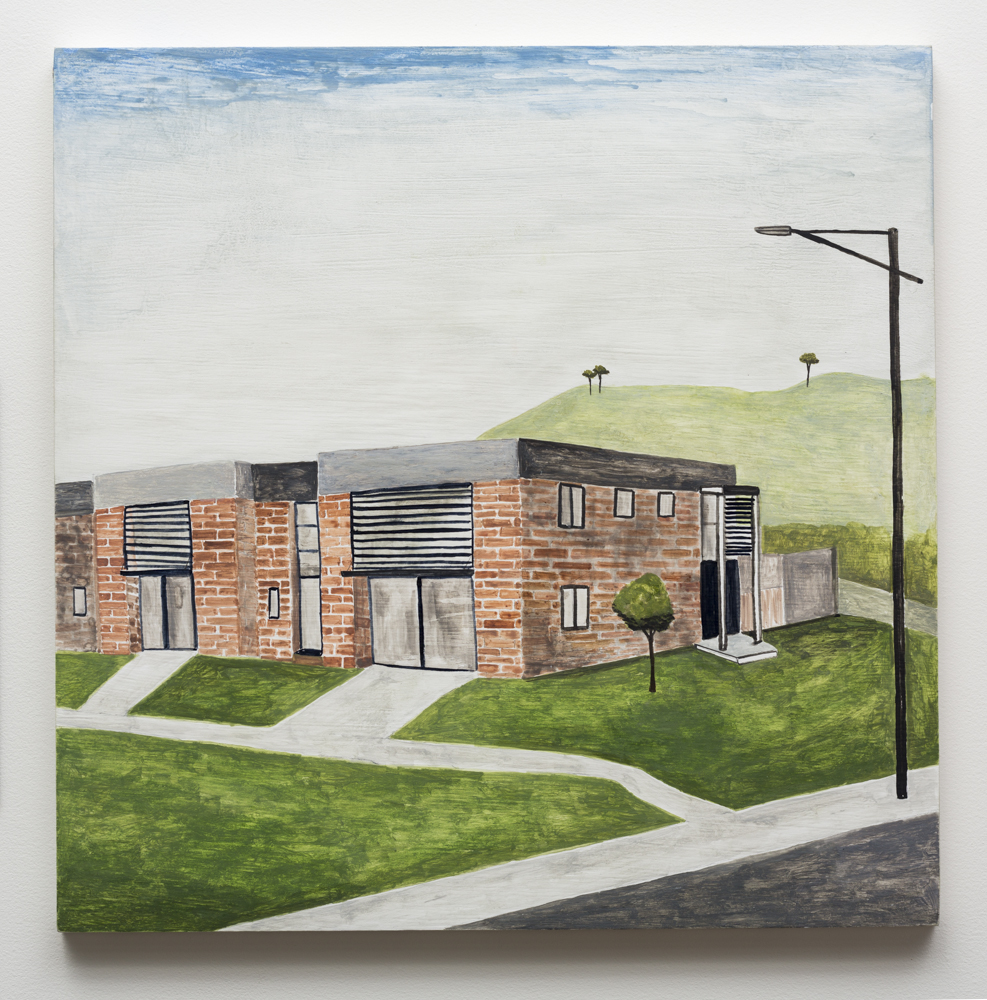
oil on plywood
420 x 440 mm
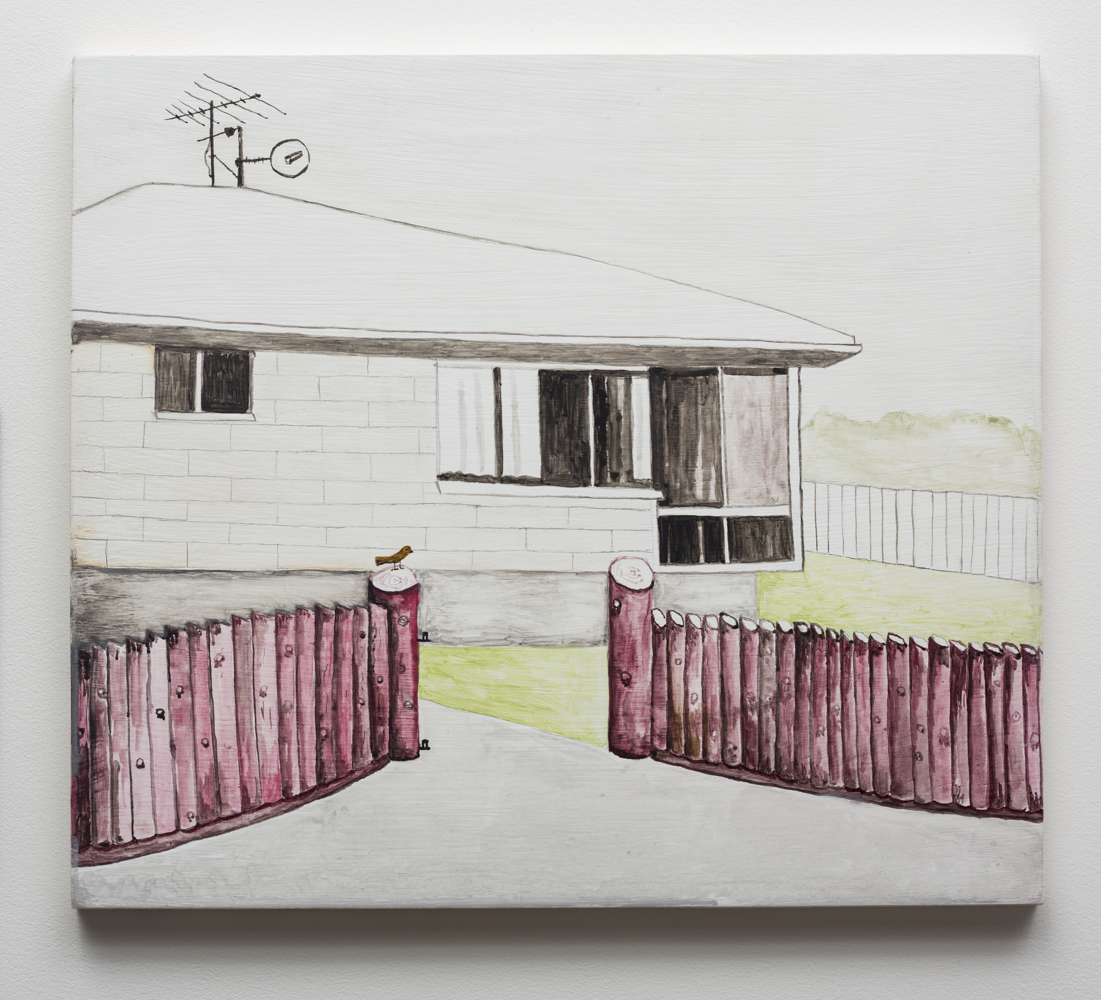
oil on plywood
370 x 440 mm
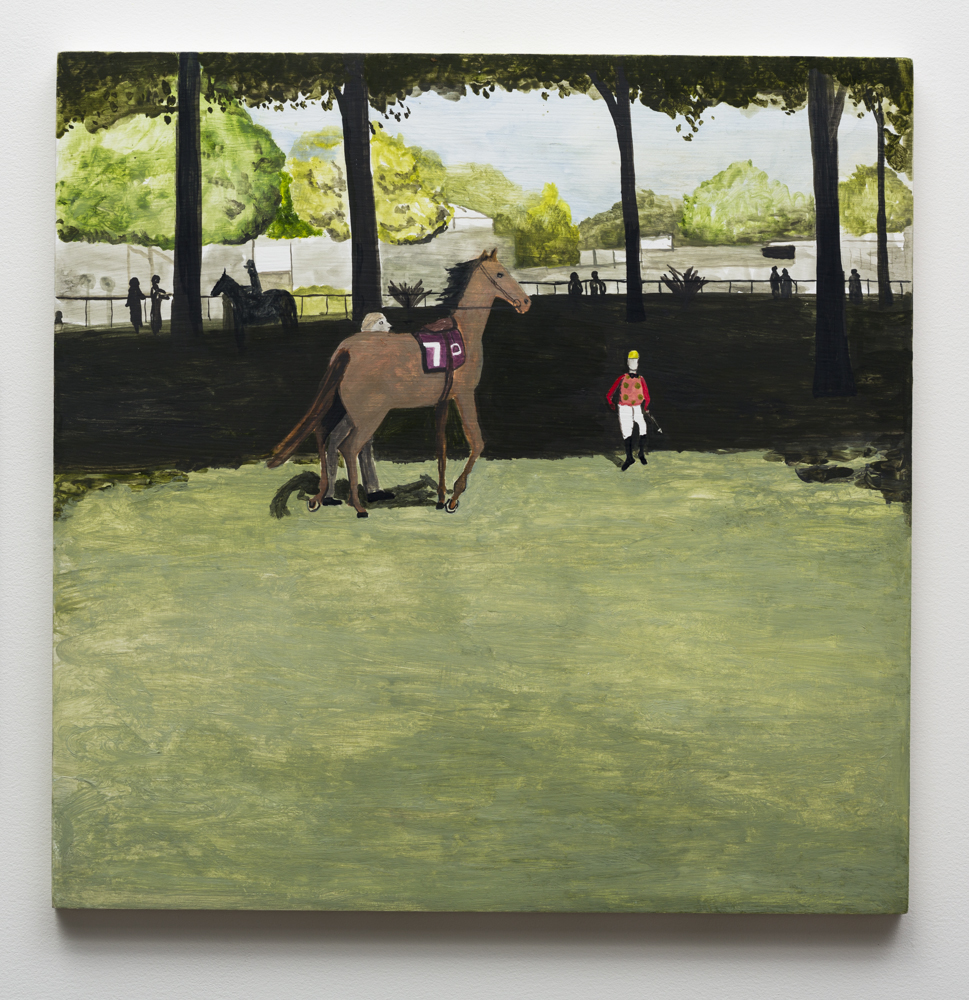
oil on plywood
420 x 440 mm
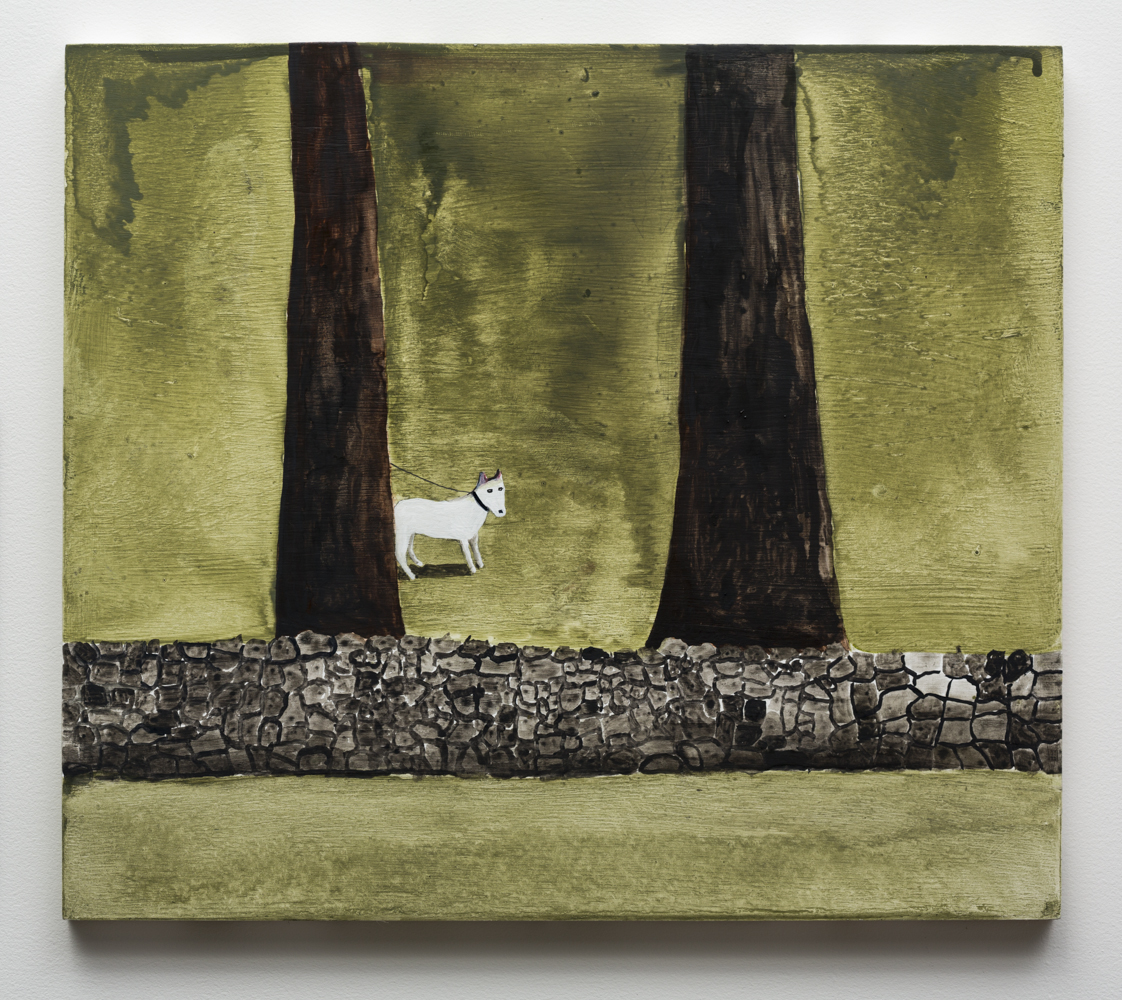
oil on plywood
370 x 440 mm
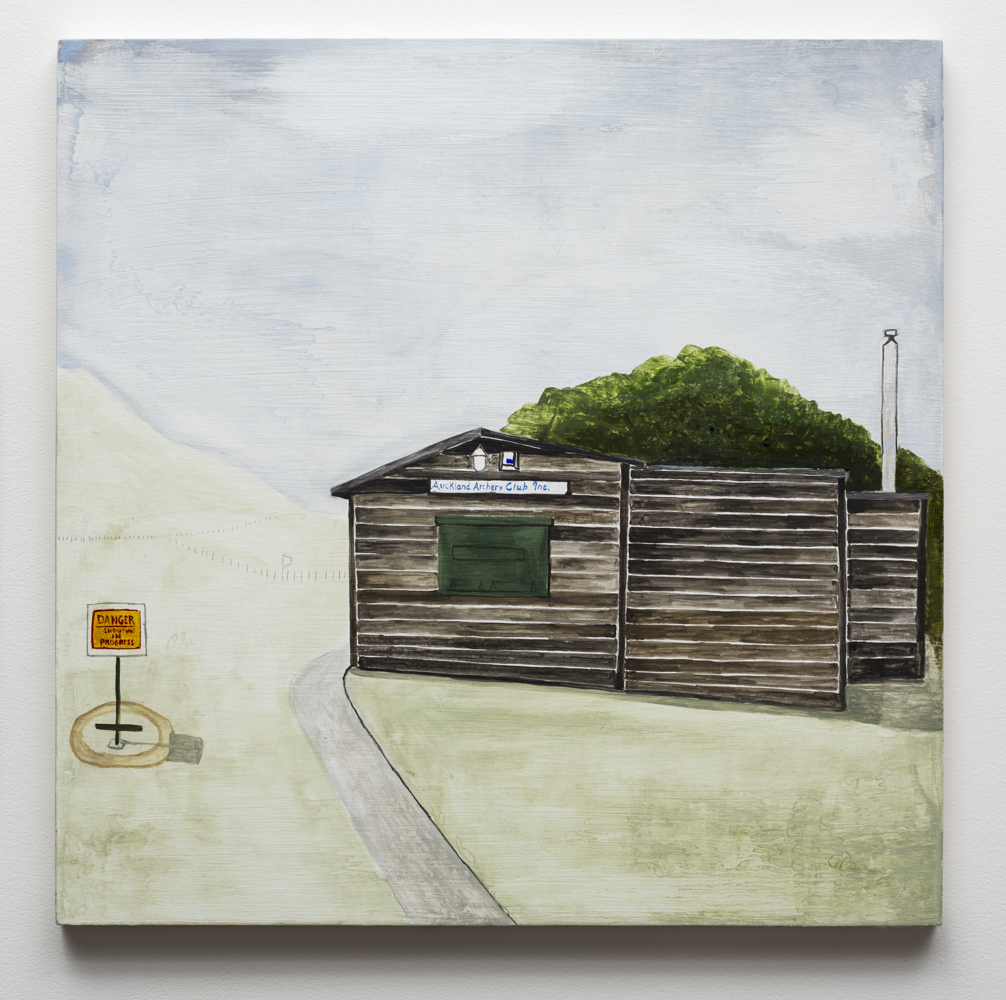
oil on plywood
420 x 440 mm
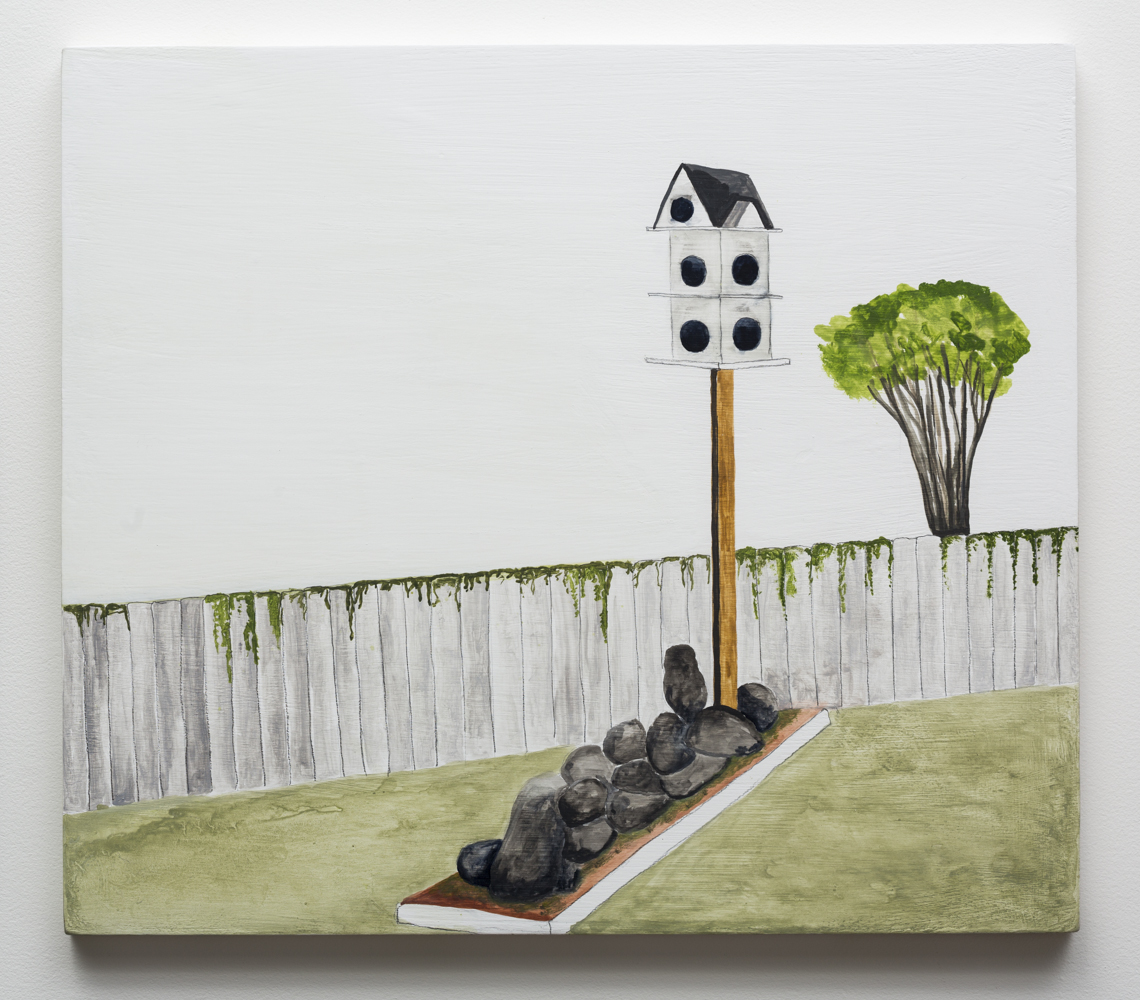
oil on plywood
370 x 440 mm
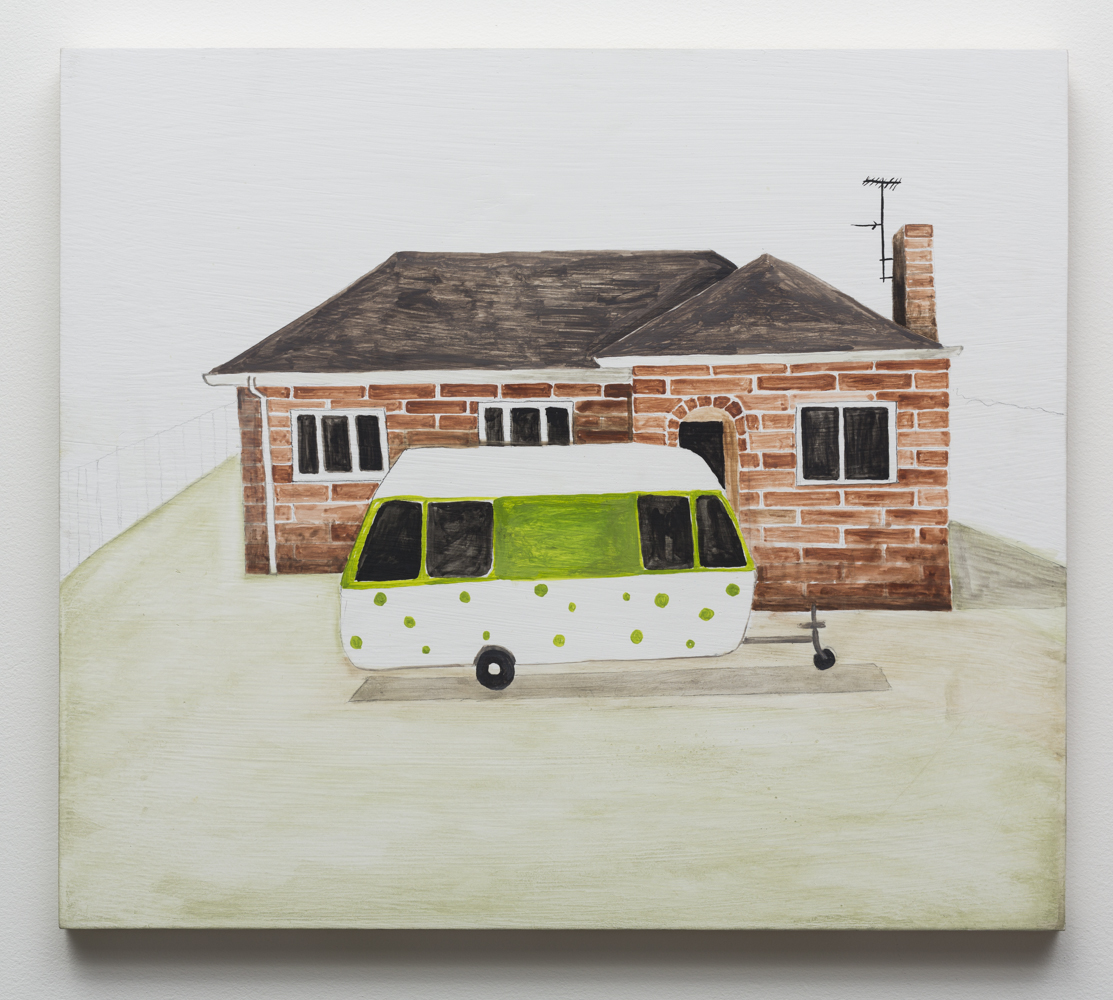
oil on plywood
370 x 440 mm
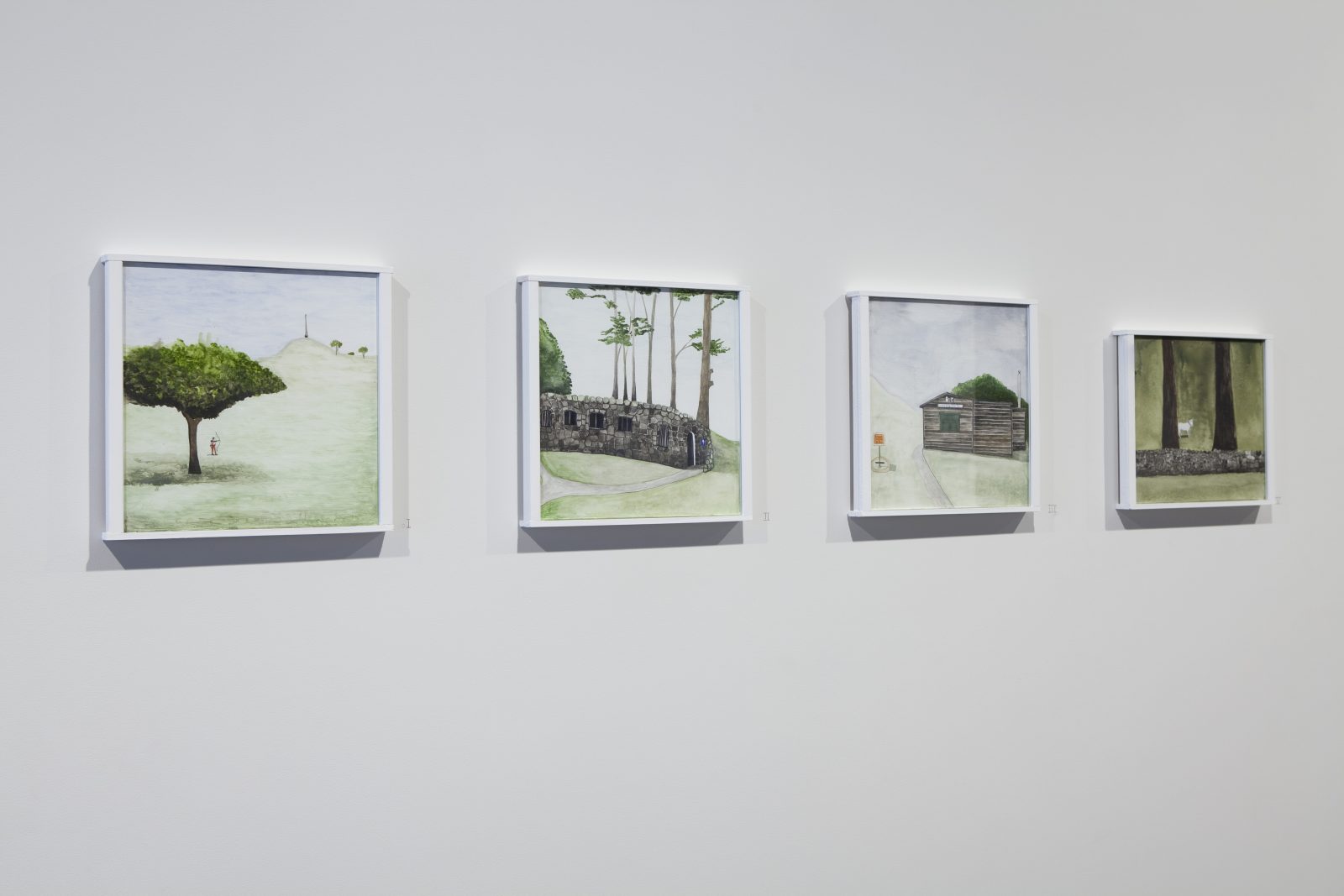
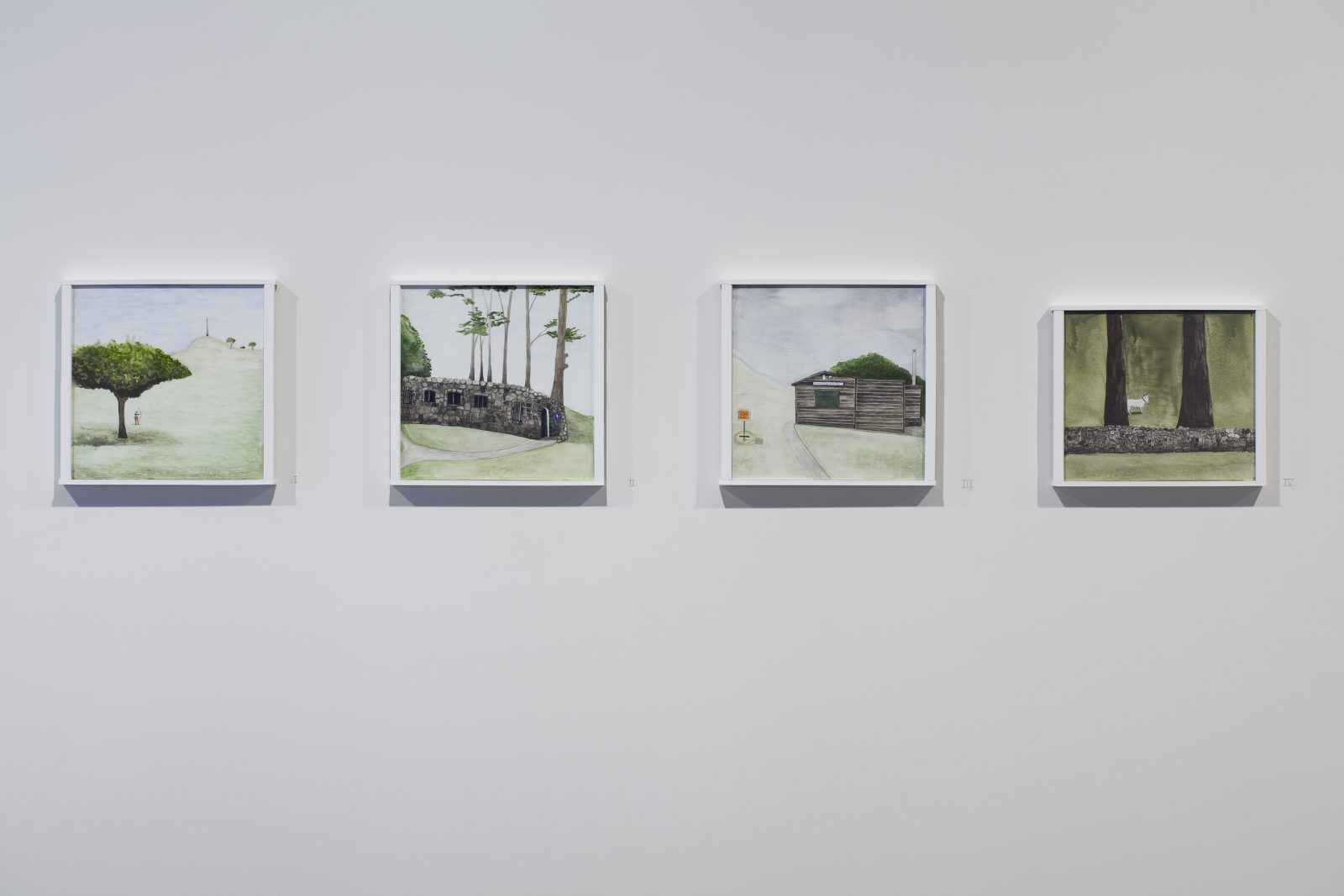
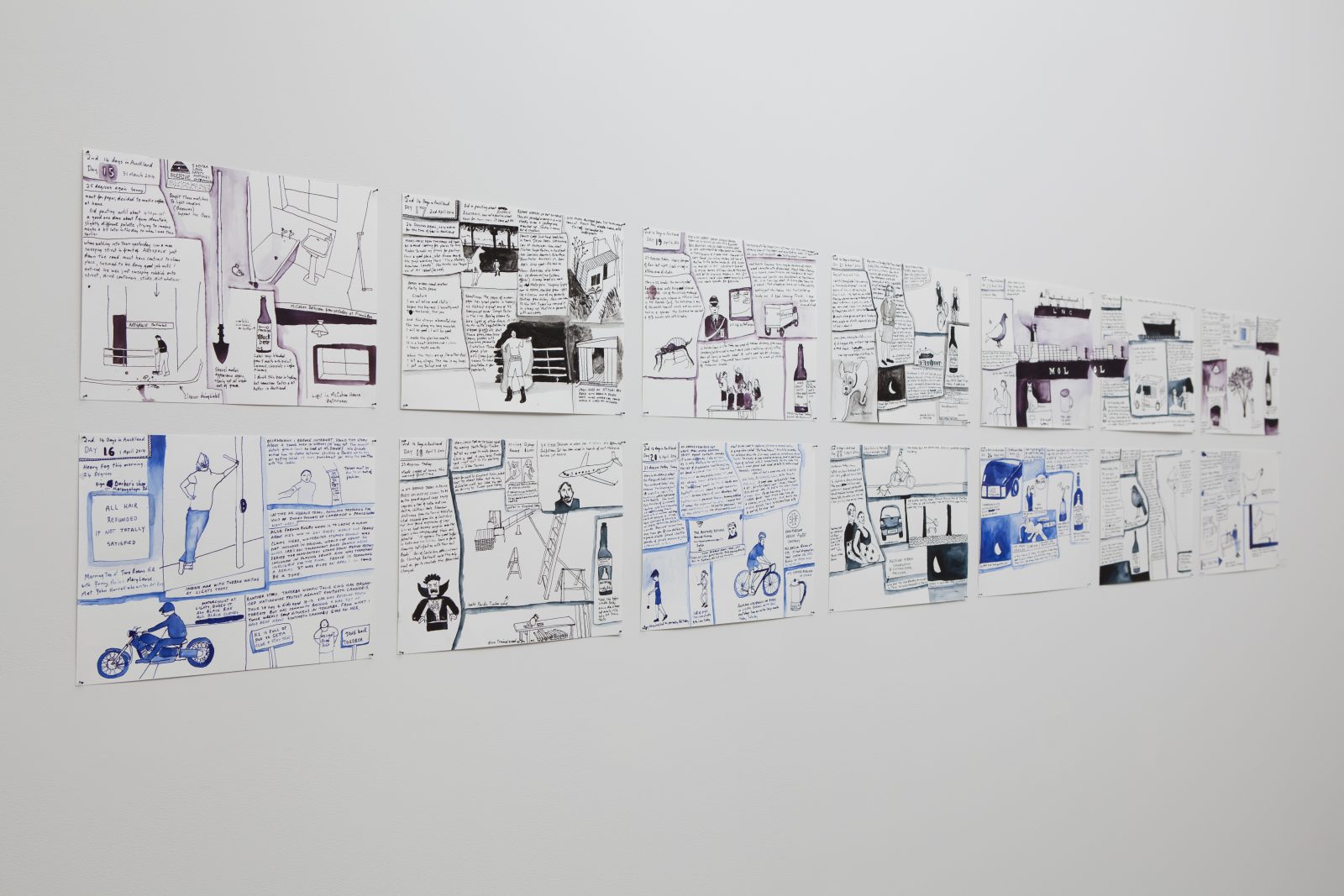
watercolour on paper
variable